#best online nabard course
Explore tagged Tumblr posts
Text
Top Study Resources for Preparing for NABARD Grade A
Preparing for the NABARD Grade A exam requires access to high-quality study materials that cover all aspects of the syllabus. From general awareness to specific subjects like agriculture and rural development, choosing the right resources can significantly boost your chances of success. Here are some top study resources that every NABARD aspirant should consider.
1. Standard Textbooks
Textbooks form the foundation of your preparation. They provide a comprehensive understanding of core subjects and help you grasp fundamental concepts.
Indian Economy by Ramesh Singh: An excellent resource for economics, it covers both basic and advanced concepts.
Agriculture at a Glance by R.K. Sharma: A must-have for aspirants to understand agricultural science and technology.
Lucent’s General Knowledge: For general awareness, this book provides concise information on various topics.
Additionally, many aspirants choose to enroll in a NABARD Grade A course to complement their preparation. These courses are designed to provide structured learning, expert guidance, and comprehensive coverage of the syllabus, ensuring you don’t miss out on important areas.
2. Government Websites and Reports
Staying updated with the latest government policies, schemes, and reports is crucial for the NABARD Grade A exam, especially in the areas of agriculture, rural development, and the economy.
NABARD’s Official Website: Regularly visit the NABARD website for updates on schemes and initiatives.
Government Reports: Read important reports like the Economic Survey, Union Budget, and NITI Aayog reports to stay informed.
Yojana and Kurukshetra Magazines: These monthly publications focus on rural development and government schemes, making them valuable for preparation.
3. Current Affairs Resources
General awareness is a key component of the NABARD Grade A exam, and staying updated with current affairs is essential. Relying on multiple sources ensures comprehensive coverage of national and international events.
The Hindu or Indian Express: Reading a daily newspaper helps keep track of important news, especially in the agriculture and rural development sectors.
Monthly Current Affairs Magazines: Choose from well-known publications like Pratiyogita Darpan or Banking Services Chronicle for detailed analysis of important events.
Mobile Apps: Use apps like GKToday or GradeUp for daily current affairs quizzes and updates.
4. Online Study Platforms
Online study platforms offer a wide range of study materials, mock tests, and expert lectures that can enhance your preparation.
EduTap Learning Solutions: A popular platform among NABARD aspirants, EduTap offers comprehensive courses, mock tests, and study materials designed specifically for NABARD Grade A exams. It provides detailed video lectures, notes, and quizzes to help aspirants grasp difficult concepts easily.
YouTube Channels: Many educators provide free lectures and tips on NABARD preparation. Channels like Study IQ and EduTap are popular among aspirants.
5. Revision Notes and Flashcards
Preparing for a competitive exam like NABARD Grade A requires continuous revision to retain important concepts and facts.
Create your own revision notes for important topics like government schemes, agricultural terms, and economic policies.
Use flashcards to memorize important dates, data, and definitions quickly.
Focus on revising current affairs and static GK daily.
Conclusion
Having the right study resources is essential to cracking the NABARD Grade A exam. From textbooks and government websites to online platforms, using a mix of resources ensures a well-rounded preparation. For structured guidance, enrolling in a NABARD Grade A course can further enhance your learning experience, giving you the confidence to tackle this competitive exam successfully. With dedication and the right resources, you can achieve your goal of clearing NABARD Grade A and embarking on a rewarding career in the banking sector.
#nabard grade b course#online nabard course#best online nabard course#nabard assistant manager courses
2 notes
·
View notes
Text
Agriculture Empowerment in Jharkhand: An Initiative by NABARD and Tractor Seva

It is a big leap forward for the region to have risen agricultural productivity. Two of the major projects of irrigation were sanctioned by NABARD recently, which also means Rs 770 crore would be sanctioned for the projects in the Palamu and Giridih districts. The projects will irrigate more than 21,000 hectares of land, uplifting rural infrastructure while making livelihood avenues available for thousands of farmers.
Investment in irrigation acts as an inducement for agricultural development.
RIDF: The RIDF sanctioned for the current fiscal 2024-25 will complete advanced irrigation systems; other than that, in Palamu, the project will irrigate 11,000 hectares more land through an exhaustive network of pipelines in eight blocks, and simultaneously, the megalift irrigation project in Giridih will cover 165 out of the 197 villages in the Pirtand block, while expanding the cultivable area by nearly 10,158 hectares.
Such investments are very crucial since they enhance agricultural activities and still contribute to general rural community development. Infrastructure changes the agricultural landscape as well as impacts better yields and increased income.
Support to Farmers through Good Quality Services
We appreciate the modern agriculture and how quality equipment is the catalyst for them. At Tractor Seva, with rich competence in all tractors - we assure to provide solutions on how farmers can keep their tractors moving forward at affordable prices. Of course, the tractors will find work to do with the irrigations if they are properly maintained.
Accessible Without Too Much Hassle Through Streamlined Services
Hassle-free booking process and the products and services needed are acquired for the farmers. Book your tractor service through our online portal, with access to some excellent kits and spares. From coolant to hydraulic oil filter, or to premium service kits, Tractor Seva is the one-stop shop for healthy machines.
Sign in to view our large inventory range.
Surf and Choose Products that best serve your need
Choose your nearest location to us for easy services
Enter Payment Information for safe and secure checkout
Confirmation and Place Order once you have finalized your purchase
Join Hands with Us to Change Agriculture
Such enormous growth in rural infrastructure makes it even more important to gear up the farmer from the right end with apt tools and services. Tractor Seva can ensure support for farmers in such changed circumstances of agriculture.
We are also inviting business seekers to franchise with us and thus can form a benefit for the farming society while creating a successful business model.
Conclusion
The financial support by the NABARD for irrigation schemes in Jharkhand speaks about the scope for this region of agricultural development. Alongside, Tractor Seva would like to assist it by providing resources to farmers so that these operations are optimized towards optimum use. And we would be available at every step for assistance to the farmer as infrastructure development and advancing agricultural practices.
Know more about the services we have in store for you and appreciate the best you can get from us by registering for Tractor Seva now.
0 notes
Text
Crack Government exam with ixambee expert guidance
In order to develop the next generation of intelligent learners, ixamBee offers the greatest technology-based learning solutions for competitive exams. In order to help students prepare for regulatory bodies' exams, banking & insurance exams, exams administered by SSC like SSC CGL, exams by Railways, exams by Teaching, and various government and other exams in the most thorough manner possible, ixamBee offers study material like mock tests, online test series, online practise tests, and speed test series.
The most complex and comprehensive way to create basics is by utilising the most recent technical tools. The most evident benefit of the thorough, extensive, and all-encompassing online preparation for competitive exams is received by students preparing for Bank, Insurance, SSC, Railways, RRB, MAT, AFCAT, Teaching, and numerous other competitive exams. The best way for students to prepare for exams is online, thus ixamBee professionals have created practise mock tests for government exams that will give them an advantage over the competitors. The most complex and comprehensive way to create basics is by utilising the most recent technical tools. The most evident benefit of the thorough, wide, and all-encompassing online study for competitive exams is received by students preparing for NABARD Grade A or Grade B, Bank, Insurance, SSC, Railways, Teaching, and other competitive exams. Online exam preparation is best for students, so ixamBee professionals have created practise mock tests for government exams to help students remain ahead of the game.
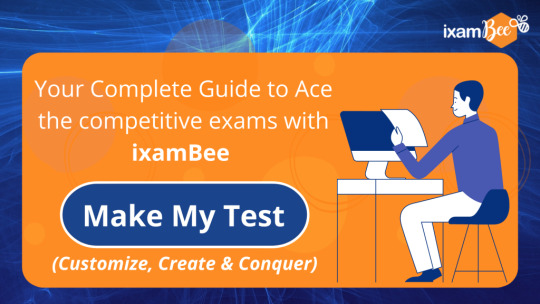
In order to help students succeed in all competitive exams in the easiest possible way, ixamBee's educational professionals have created test series and free mock tests for Bank and all other exams. Every online test that is created makes sure to adhere to the most recent exam format and keep the same level of challenge as the actual exam.
Reserve Bank of India (RBI) Grade B Officer Exam: The Reserve Bank of India conducts the highly competitive RBI Grade B Officer test to hire officials for its many departments. There are three parts to the exam: the preliminary exam, the main exam, and the interview. For the purpose of assisting students in preparing for all three exam phases, iXamBee provides thorough study resources, live online lectures, practise exams, and mock exams.
National Bank for Agriculture and Rural Development (NABARD) Exam: The NABARD test is held to hire officers in NABARD's several departments. NABARD is an Indian development finance organisation. There are two phases to the exam: the preliminary exam and the main exam. For both exam periods, iXamBee provides instruction via live online lessons, practise exams, and mock exams.
Securities and Exchange Board of India (SEBI) Grade A Officer Exam: SEBI, which oversees the Indian securities market, holds this examination to appoint officers to its several departments. There are two phases to the exam: the preliminary exam and the main exam. iXamBee provides thorough preparation materials for both exam phases, including live online lessons, practise exams, and mock exams.
Staff Selection Commission (SSC) Exams: SSC conducts various exams for recruitment in government departments and organizations in India. iXamBee offers courses for several SSC exams, including SSC CGL, SSC CHSL, SSC JE, and SSC MTS. The courses include comprehensive study materials, live online classes, practice tests, and mock tests.
0 notes
Text
Online & Offline Classes for Entrance Exams 2023. All Info CUET IIT CLAT IPM BMS BEd SSC Bank Railways DSSSB KVS PRT TGT PGT CTET UPTET Delhi police MBA CAT MCA NIMCET BCA BElEd NIFT NDA Airforce Navy Agniveer CDS AFCAT CAPF AC EPFO NABARD SEBI RBI Grade B LIC AAO ADO
IBPS SBI Bank PO Specialist Officers Clerk RRB PsychoTest SSB Interview Call 9891726652 |
9212096139 | Top Faculties Up-to-date Study Materials Best Results Hostel Facilities Admission Open! Join Soon
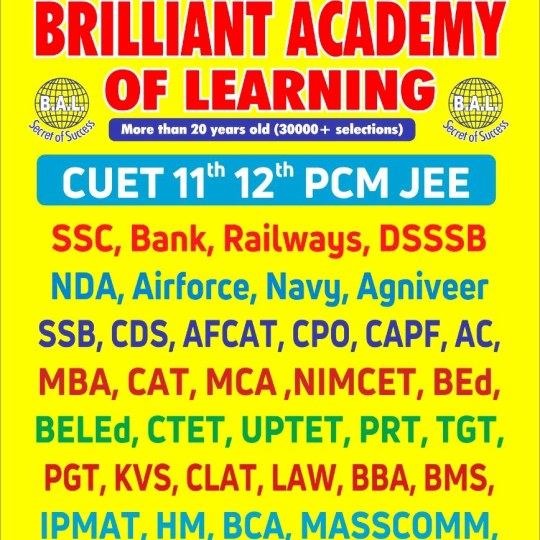
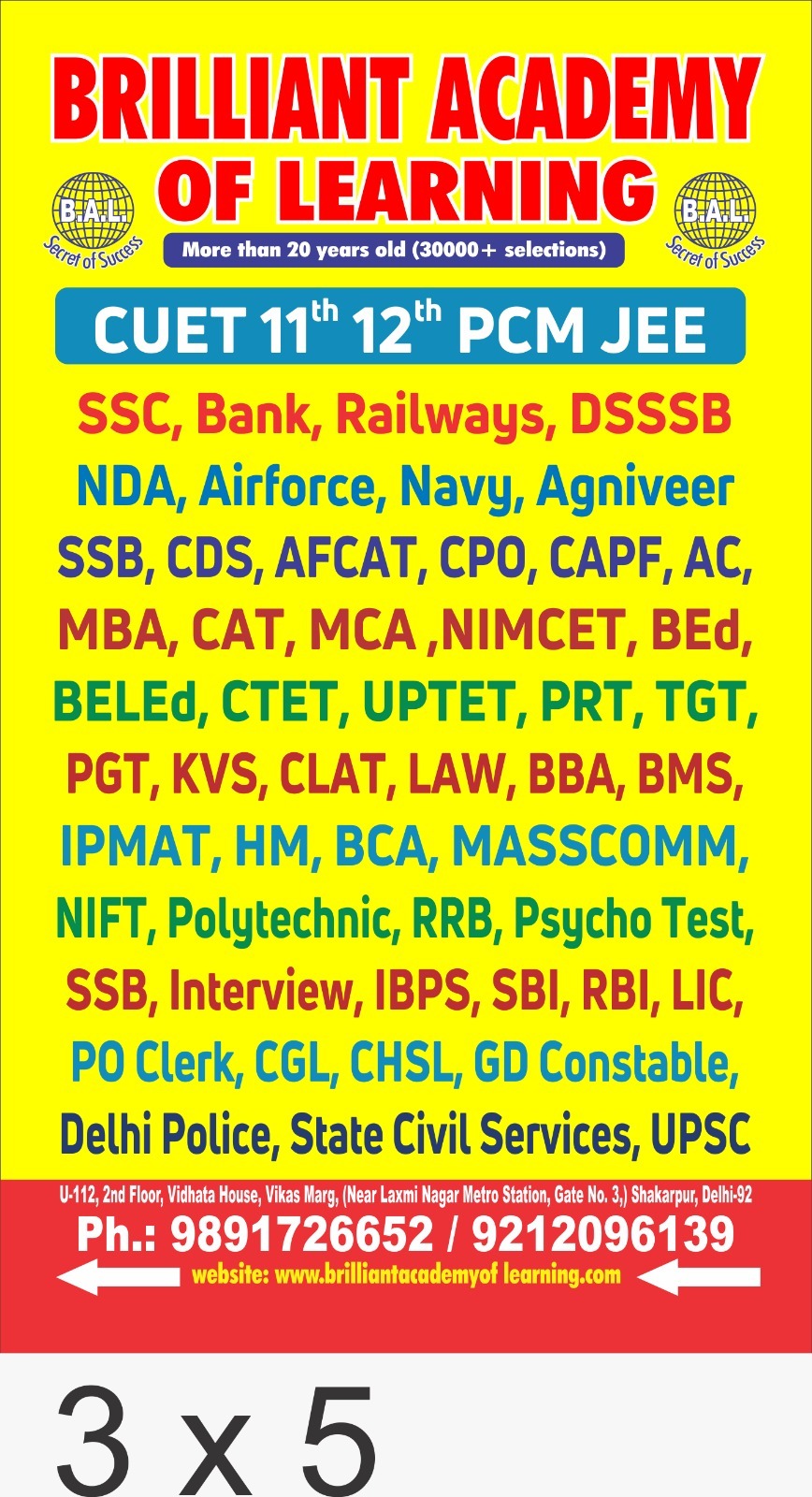
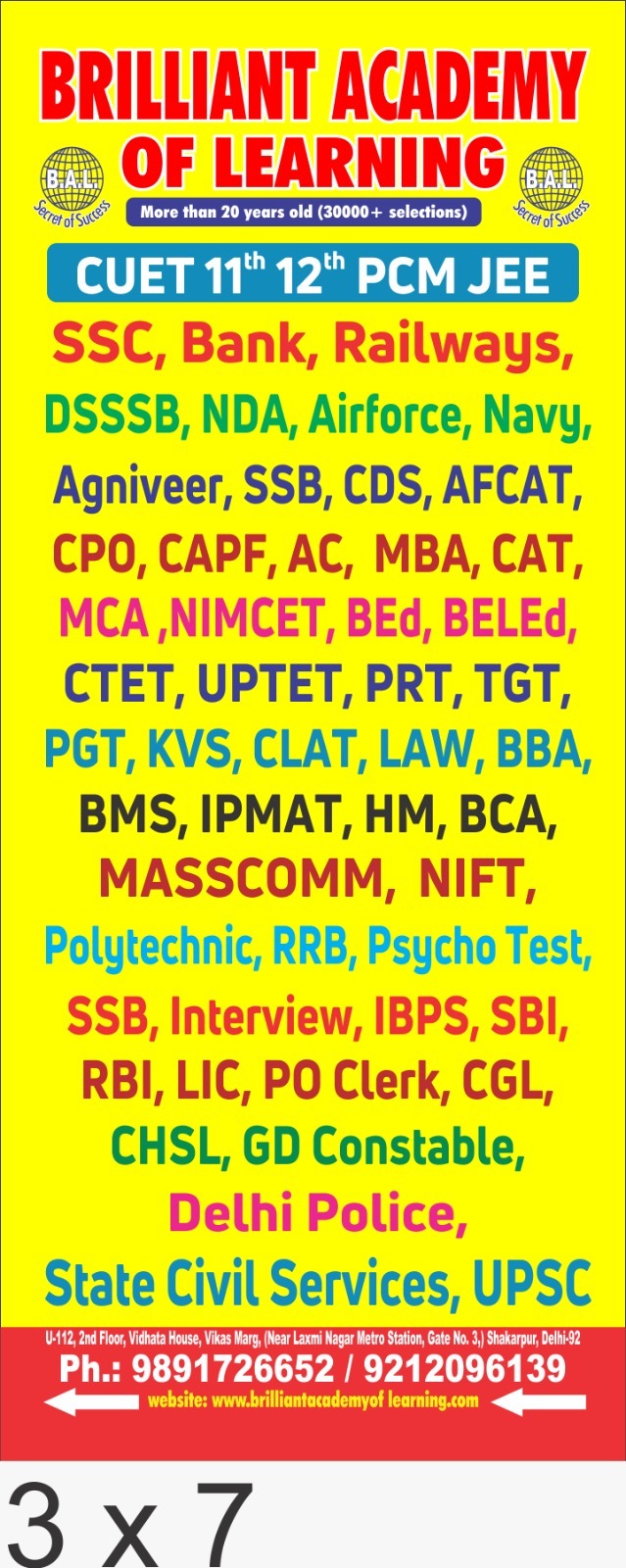
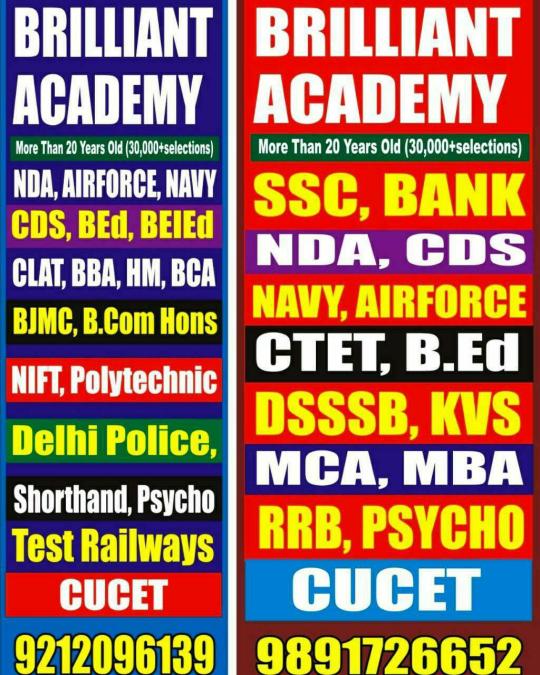
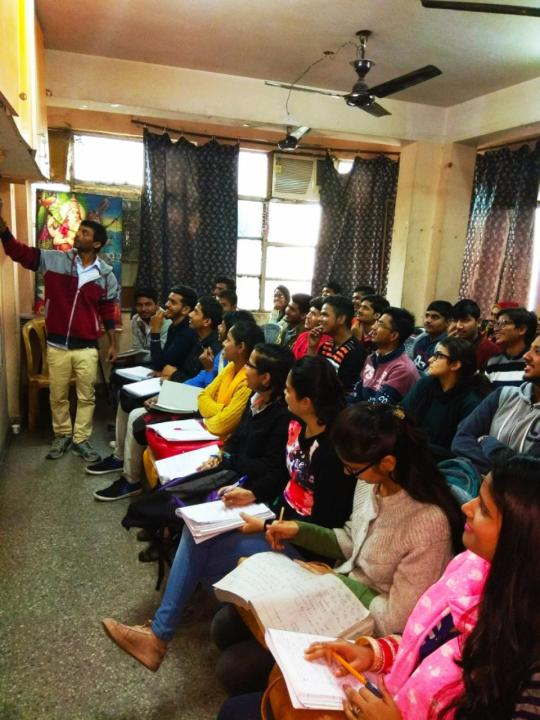
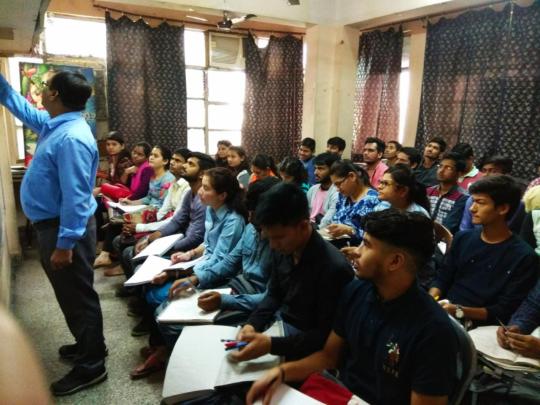
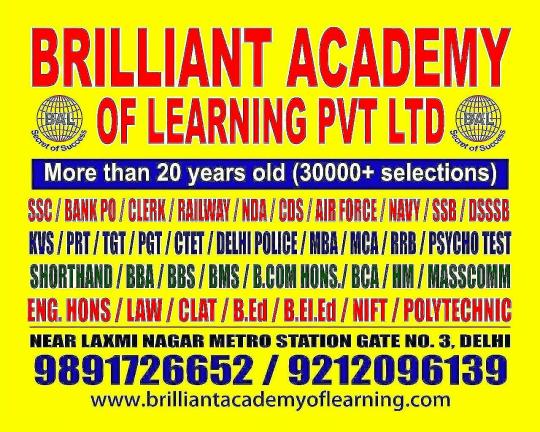
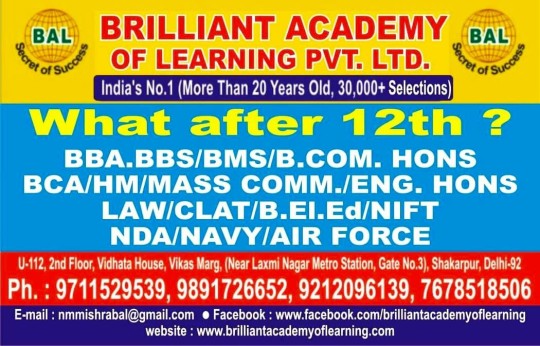
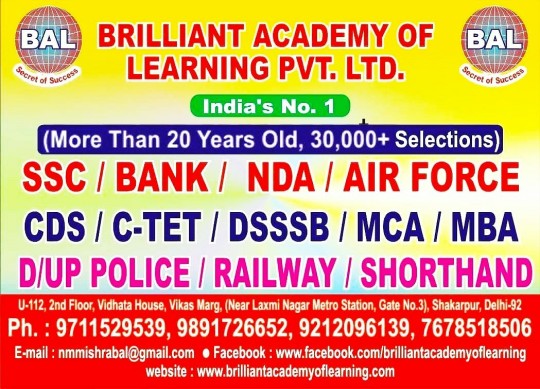
#iit jee#11thpcmonlineclasses#12thpcmonlineclasses#nda coaching classes#airforce x y#navycoaching#cdscoaching#ssc cgl exam#ssc coaching#ibpsexam#sbipreparation#bank exams#mcaentrancecoachinginlaxminagar#mbaentrancepreparation#clatpreparation#ipmatpreparation#bbaentranceexams#bcaentrance#hmentrance#bjmcentrancecoaching#ctetcoachinginlaxminagar#bedcoachingindelhi#dsssbcoachingindelhi#railwayscoachingindelhi#catcoachingdelhi#nimcetentrance#brilliantacademyoflearning#call9891726652#laxminagar#delhi
0 notes
Text
Availing Combined Digital Learning Methods for RBI & Nabard Grade A Exam
Are you a competitive exam aspirant?
Are you preparing for RBI, Nabard, and SEBI & confused about which one to give priority?
Well, not anymore! Avail of the combined and interactive digital learning methodologies for exams like SEBI, RBI, and Nabard Grade A Exam and pep up for all examinations simultaneously.
As we all know, both Nabard & RBI provide the best career opportunities for students and banking applicants. But opting for individual courses for both can take up a lot of your efforts, time, and money as well. 70-80% of learning required is the same for both courses and students get 3-5 months gap between the dates of these examinations.
If you check the RBI Grade B Exam Syllabus in detail, you can find great similarities between both courses. Thus, to avoid wastage of time and to circumvent confusion about priority; joining online combo courses for RBI Grade B and NABARD Grade A/B is the best option. Such combined courses are held by top educators online.
Of course, preparation for both Nabard and RBI is one of those toughest phases of life, and wasting more effort and time on preparing for both separately can cost a fortune to any student. But for wiser aspirants who are confident about building a career in one of these organizations, then combined courses online is the right to-go path.
By joining such joint courses, you get detailed Nabard Grade A/B and RBI Grade B Exam Syllabus, previous year question papers, exam notifications, video tutorials, study materials, notes, and audiovisual training on every possible subject, right from your home. It, in turn, helps you have full control of things like exam preparation and study timing.
Give your aspirations for cracking Nabard Grade A Exam or joining RBI successful wings with the interactive, live coaching from top educators!
1 note
·
View note
Text
Best competitive exam courses online
ECOPROS provides proficient educational services in the domain of top competitive exams viz. RBI Grade B, NABARD Grade A/B, SEBI Grade A, IRDAI along with a well laid-out programme designed specifically for UPSC aspirants. We also offer a comprehensive 360-degree learning programme (ECOPROS PRODEGREE) that covers the syllabus of almost all the major competitive exams. As an added advantage, we provide consulting services in the domain of Capital Management of Financial Intermediaries, Natural Resource Management & Agribusiness Modelling.
1 note
·
View note
Link
#bank exams#bank exam preparation#sbi po 2020#sbi po exam#ibps po exam#ibps po preparation#video course#online courses
1 note
·
View note
Text
Government Job Preparation | Ambitious Baba

Government Job preparation without coaching can be done if you follow our Videos provided by Ambitious baba for SSC , Bank , Railway, JAIIB, CAIIB, Para 13.2, Current Affairs and Job Preparation Videos. We are Educating and guiding the aspirants to enhance their skills who wants to get success through government job. #1 Government Jobs Portal in India Ambitious Baba is the Best platform to Provide Study Materials for Bank, SSC, Railway, JAIIB, CAIIB, Para 13.2, GIPSA, Licentiate, Fellowship, Associates and Other Government and Promotional Exams. Best Online Mock Test test.
Is the platform for Online Mock Test which provides best user interface with actual exam panel and with the best , Latest and Accurate content for IBPS, SBI, RBI, NABARD, SIDBI, JAIIB Mock Test, CAIIB Mock Test, Para 13.2 Mock Test, and Other exams. In This video, we will discuss the top 500 Questions for the upcoming SBI PO and clerk 2022 examination for reasoning ability. Prepare for Bank, SSC, Railway, JAIIB, CAIIB, Para 13.2, GIPSA and Other Government Exams. Welcome to Ambitious Baba - India's No1 Government Exam Preparation Channel. Government Job preparation without coaching can be done if you follow our Videos provided by Ambitious baba for SSC , SBI PO Course , Railway, JAIIB, CAIIB, Para 13.2, Current Affairs and Government Jobs.
Ambitious Baba is the Largest platform in India to Target JAIIB & CAIIB Exam. Here we are come out for those people working in the banking industry to feel comfortable while giving their JAIIB & CAIIB Exams. Because, there are not much online websites are available to give mock tests for JAIIB & CAIIB. Through this website, we try to provide free study materials and paid mock tests. Tests for English class for Bank Exams, City Union Bank (CUB) has released the notification for the recruitment of for the Post of Relationship Manager with Various Vacancies. Candidates can check the eligibility criteria from the official notification and apply Online Between 25 May 2022 to 23 June 2022.
0 notes
Text
Finance Essentials for Start - Up Entrepreneurs by Professor Trilochan Sastry

About the book
This book tries to present simple but important concepts in accounts and finance necessary to run a start-up successfully. It is not intended to be part of any formal course but rather a handbook to manage the finances of a business. Finance and Accounts is a vast subject and a formal study could take some years. What we have tried to do in this book is to simplify those topics which are very essential and basic in the day-to-day running of a business. If you go through these pages and try to grasp these basic principles, there is every chance that you can master the basics of finance to run your business. You must be familiar with the Pareto principle. In most cases, eighty percent of the effect comes from twenty percent of the causes. Similarly, in running a business, twenty percent of the theories of finance and accounts are important for running eighty percent of your business. It is this twenty percent that we have tried to simplify and put across to you in this book, both in text and in a presentation. The presentation that follows the main text was given to a batch of entrepreneurs who had enrolled for a popular program designed by IIM Bangalore for ooks founders of new start-ups. The presentation was very well received.
About the author
Pradeep Swaminathan is a finance professional (CA, India; CIMA, London) with over three decades of corporate experience and has been on the Board of Directors of leading companies both in India and abroad. He was instrumental in turning around a listed company for which the company received an award from the President of India. He is now involved in a successful start-up, set up to aid small farmers. He is also a visiting faculty at IIM Bangalore’s start-up cell. Pradeep Swaminathan is an author, whose articles have been carried in leading publications such as the Reader’s Digest and The Hindu. This is his third book. His previous book, ‘Who killed the Boss?’ exposes corporate bullying, which even though very much prevalent, is not much talked about. The fast-paced book, presented as a murder mystery, is available on Amazon and has received many outstanding reviews. Professor Trilochan Sastry teaches at IIM Bangalore and was a former Dean there. He obtained his B.Tech. from IIT Delhi, MBA from IIM Ahmedabad, and Ph.D. from the Massachusetts Institute of Technology. He taught for several years at IIM Ahmedabad, and also at ISB Hyderabad. He has held Visiting Positions at MIT, International University of Japan and Hong Kong Institute of Science and Technology. He has established a few successful ventures. One group of them are farmer producer organizations (FPOs) with over 40,000 members. Another is a food company called Farmveda. He also founded two NGOs namely, the Centre for Collective Development and the Association for Democratic Reforms.
He was a Member of the Board, IIM Bangalore from 2006 to 2011. He is also on the board of some publicly listed companies and was earlier on the Board of NABARD. He has received several Awards including the Best Young Teacher award for 1999 from the Association of Indian Management Schools (AIMS), “Outstanding Contribution to National Development” Award from IIT Delhi in 2005, Distinguished Alumnus Award, IIT Delhi, 2012, “Young Global Leader”, 2008 by the World Economic Awards for Public Service from NDTV, CNN-IBN and TOI.
Shop now from Amazon, Flipkart, and BlueRose online.
1 note
·
View note
Text
LET’S GUIDE YOU WITH THE DIFFERENCE BETWEEN BANK PO AND SSC EXAMS.
What are the ways in which Bank PO and SSC differ and which one is best suited for a candidate’s career? These are some of the questions most students looking for a career in the Banking industry are seeking answers for. With the public sector banks and SSC being the major recruiting organisations in the country, banking sectors come up with lakhs of vacancies every year and a considerable number of students opt for these exams because of job securities in both the sectors. So, what’s best for a candidate depends on the individual area of interest. In this article, we shall guide you with the difference between Bank PO exams and SSC exams.
EXAMINATION PATTERN-
SSC exams- every year SSC recruits staff to various posts in departments, ministries and organisations under the Government of India. Below is the list of exams conducted yearly by SSC-
1. SSC GD
2. SSC CGL
3. SSC CHSL
4. SSC JE
5. SSC CPO
6. SSC MTS
7. SSC Stenographer
Bank exams- in India, banking exams are considered to be the stepping-stone for aspirants who want a career in the banking industry. Below is the list of all major exams conducted across India.
1. SBI PO
2.SBI SO
3. SBI Clerk
4. IBPS PO
5. IBPS SO
6. IBPS Clerk
7. IBPS RRB
8. RBI Officer Grade B
9. RBI Officer Grade C
10. RBI Junior Engineer
11. NABARD
VARIATION IN SYLLABUS- subjects including Quantitative Aptitude, Reasoning Ability, English and General Awareness for both Banks and SSCs are similar but there are many variations when compared topic-wise.
· The Reasoning for Bank exams are tougher than SSC exam as it is more concept based.
· In the Quantitative Aptitude section, candidates preparing for SSC CGL need to focus more on conceptual topics like trigonometry, algebra etc.
· In the English section, SSC focuses more on idioms, spotting the errors, synonyms and antonyms etc. Whereas, in bank exams questions based on vocals and grammar are asked and syllogism and reading comprehension are given more weightage.
· In the General Awareness section, SSC focuses on general awareness of history, geography, Indian politics and economy. While in Bank exams it is more about banking awareness that consist of banking terminology and process.
We hope the information provided above helps aspirants make the right choice between the two options. The Banking sector is a huge goldmine of opportunities for graduates seeking a secured Government job and a good career. In order to enable students to make the most of these opportunities and emerge successful, Study at Home have come up with the well curated Banking courses online. Prepare with the best banking courses online in India, banking courses with certificates in India, best SSC online coaching in India offered by us at www.studyathome.org.
0 notes
Text
Ex SBI PO turned Entrepreneur from Delhi is revolutionizing the Online Education
Anuj Jindal was working as an SBI PO in Mumbai when he realized that the normal 9–5 office life was not for him. For him, there had to be more to life than that. Even in those days, he had an inkling that somewhere in him lay a teacher, and that teaching would be the profession that would suit him best.
So, after 3 months of working as an SBI PO, he followed his calling and took admission into the M. Com program at the prestigious Delhi School of Economics (DSE), and incidentally, it was here that he would first discover his exemplary knack for teaching and his ability to positively impact the society while doing the same. Over the next year, he would go on to complete his M. Com degree, and also simultaneously grow as a teacher par excellence.
However, it would only be later, during his preparations for the RBI Grade B exam that he would finally turn his head towards the need for a robust online education setup for govt. job entrance exams.
Basically, the thing that really did trigger his transformation from being a mundane employee at SBI to a visionary entrepreneur, was when he sensed the serious lack of efficacy and affordability in the preparation modules for the various Government Job entrance exams in markets of the day. This is exactly the thing that he wanted to fix.
Thus, seeing the massive demand for good quality online education and exam preparation modules, it didn’t take Mr. Jindal a lot of time to realize what direction he had to take.
That was how the brand called anujjindal.in would eventually come into existence.
The Story of the Brand and Owner.
Anuj Jindal’s tryst with being an entrepreneur was inspired by two events. The first was when he realized that his teaching ability was impeccable, and the second was when he recognized the sector in which his teaching ability was to have the maximum utility.
So, after recognizing the latter, he would create an FB group and start inviting people to join. Here he would teach his students everything they would need to know to crack their RBI Grade B exams, and to his surprise, at the end of the year, a lot of them did.
This initial success would then grant him the required confidence and support that he would need to further his designs of structuring the nascent state of the online education sector in India for his niche. At this point, he would also start to upload videos on YouTube and consequently gain traction online and thus become a successful Youtuber in his own right.
All of this would go on till he would graduate from DSE in the June of 2016. In the meantime, he had also cleared the UGC NET JRF exams, on the basis of which he would start to apply for several teaching posts in colleges all over the nation.
However, during his interviews, he would find that instead of looking for able academic mentors, the education system of the time was looking for able administrators and networkers.
That was when he would finally decide to go through with his gut instinct of formalizing his teaching plans into a legitimate monetizable business model.
Anujjindal.in Platform
Anujjindal.in follows a B2C business model, and sells its study materials and online video courses via the website or the app itself. Through Anujjindal.in website or app students can enroll for the various courses that are in offer.
The courses that are sold via the Anujjindal.in the website is of the preparation for exams like RBI Grade B, UGC NET Commerce, Management, and Economics exams, NABARD Grade A, SEBI Grade A, CTET, and DSSSB.
Elaborating on the brand’s proposal for the customers he serves, Mr. Jindal says,
” The unique selling point of Anujjindal. in is that we excel at teaching topics that are foreign to the educational backgrounds of most of our students.
For example, we are good at teaching the subjects of economics and accounts, which are essential subjects of the commerce stream, to students that have done engineering. And engineering students are mostly those that have never studied any subject outside of the stream of science. So yeah, that’s where we excel.
And, we have the numbers to back our claim too, as a majority of our students that clear the heavy commerce stream-based exams of RBI, SEBI, and NABARD, are engineers by qualification.
Also, we have kept the fees of our courses at a level where every student that comes to us for guidance is able to easily afford the same.”
Owing to the success of the brand of anujjindal.in, the owner Mr. Jindal has been called upon to conduct seminars on the same, by several colleges like DSE, Hansraj, SRCC, and JIMS. He’s also been called upon by the Rotaract Club of India to give talks on entrepreneurship at several other institutions as well.
Apart from giving talks at colleges, he has also worked with the entrepreneurship cell of the Delhi government to cultivate, in young kids, a spirit of hard work and enterprise. To elaborate a bit further on the same, the Delhi govt. had distributed 1000 bucks each to the students of class 11 and 12 in its schools, and then called upon Mr. Jindal to teach the students about how and where to successfully invest the 1000 Rupees and earn profits.
Future plans
” My motivation when I started Anujjindal.in was to impart education to my students in the most innovative, creative, affordable, and interesting ways possible, to make education a process that is fun and invigorating for the students, and the intention has not changed yet, nor do I think it ever will.
Apart from staying true to the motivation that I have already mentioned, I would also like to create teaching methods and processes through which we as teachers can enable students to think in a more interdisciplinary manner, instead of the usual box-like subject-specific thinking.
Also, I know that till now anujjindal.in has primarily been about preparing students to get govt. jobs, but now I am planning to create a platform where people can come and learn some essential life skills such as urban farming, understanding and investing in the stock market, etc.
Through this platform, I would want people to add more meaning and value to their lives and also broaden the horizon of their minds.
The brand is also geared to scale up in the coming months by launching updates on its mobile application as well.”, said Anuj Jindal, EduTech Expert, Founder & CEO, Anujjindal.in
#anujjindal#ugcnet#ugcnetcoaching#business#education#anuj jindal#nabard grade a#nabard grade b#rbi grade b#sebi grade a
0 notes
Link
Aspirants appearing for State bank PO exam 2020 download your latest updated quantitative aptitude, reasoning ability and English language syllabus to get the detailed description of the pattern split.
Take the free mock test available online to get an in-depth insight into the exam even better. Have a look at the tailor-made best video tutorials by the IBPS guide to boost your performance at the upcoming bank exam.
0 notes
Text
Best Online Exam Test Series for SSC, Bank, Railways & Other Govt. Exams | Gurukul Academy
Gurukul Academy offers best online exam test series, which is very useful for the preparation of SSC, Bank PO Examination. This online exam test series has been designed according to the latest syllabus, patterns for the practice of online exam through expert faculty members. Gurukul Academy wants to ensure that every student gets the best online exam test series for his preparation for SSC CGL, Bank PO & Clerk, RRB, Railway NTPC, State Govt. Exams and Defence also. Our Online Exam Test Series basically introduced for to increase the speed efficiency of each & every student. By taking regular participation in the online test series, students definitely increase the chance of success in the Govt. Competitive Examination.

Online Courses for Test Series: The following courses associated for the online exam test series:
SSC CGL
Bank PO & Clerk, RRB
Defence
Railway, NTPC
Uttarakhand State Govt. Examination
LIC, RBI, NABARD
CAT, MAT & CLAT
Features of Online Exam Test Series: There are a various features of online exam test series which are as following:
Exam Oriented Questions
Quality Test Papers
Most Experienced Team
Paper Pattern
Assessment of your performance
Helpful in Identifying strength & weakness
Comparison with toppers
Right/Wrong Attempted Answer Summary
Hindi or English Language Online Exam Test Series
It consists Quantitative Aptitude, Logical Reasoning, English Language, General Awareness & Computers.
Performance Chart & Detailed Explanation
Timely Completion
All Indian Ranking
Teacher’s Guidance
Doubts Solving
Continuously Improve
Re-evaluation
Time Management benefit etc.
For any query, Please Call: +91-976-035-6920, 989-790-6838 or Visit Gurukul Academy Website
0 notes
Text
The amazing story of Jignesh Shah and MCX

The meeting with Jignesh Shah, managing director, Multi Commodity Exchange of India, is scheduled for 4 p.m., and begins at five past. The man is not just prompt, he makes spending 90 minutes with a journalist seem like no effort at all. (He is extremely media friendly and projects an impeccable corporate image.)
This, despite him telling me later that he works a 15-hour day, and I suspect they are often longer. There's enough hyperactivity in the commodity markets to justify it.
Trading volumes in commodity futures surpassed capital market futures in August for the first time in the history of domestic derivatives, and average daily trading volumes have crossed the Rs 10,000 crore (Rs 100 billion) mark. MCX is in the thick of it.
Indications of the nature of the business are up for all to see. The walls of the swanky front office are covered in photographs of commodities like sunflower, rice, sugar and -- as he emphatically points out -- gold. Bullion is its blue-eyed commodity and, along with energy, forms the largest chunk (70-80 per cent) of its trade volumes.
"Let me tell you," he starts off, "when Financial Technologies (FTIL, the financial product company that promotes MCX) applied for a commodity exchange licence in 2002, we were up against biggies like the Bombay Stock Exchange.
The media decided I, neither a trader nor a banker, was least likely to get government approval; besides what did a technology company have to offer? Not only did we get the in-principle approval, we went live in a record nine months on November 10, 2003. That was my first show of might."
Jignesh Shah was always a go-getter, even when he was just eight. "My mind was made up when I was in second grade. I knew I wanted to do engineering, go abroad, set up my own business," he explains. Incidentally, Shah also met his wife when he was in the second grade. Prodigious times in the life of an eight-year-old.
So engineering it was, although the conventional options of mechanical and electrical engineering gave way to electronic and telecommunications. Shah says, "Normally, the route would have been either the United States for MS or to join a branded technology company like TCS."
But Shah, as is evident, was not one for taking the road well travelled. "I chose, instead, to join the BSE on Project BOLT (Bombay Online Trading System), an ambitious Rs 100 crore (Rs 1 billion) project to automate the exchange.
However, the project was transferred mid-process to CMC (an IT solutions company), but not before Shah, and his eventual partner and executive director at FTIL, Dewang Neralla, had a chance to witness how technology has revolutionised capital markets from stints at the Hong Kong and Tokyo stock exchanges, and NASDAQ.
"The technology we had developed for BSE lay with us, unutilised, so the obvious move was to put it to good use elsewhere," explains Shah. Again he saw beyond the immediate horizon, and turned down an offer to work on the Merrill Lynch New York Foreign Exchange trading platform.
In 1995, with Shah as the dreamer and Neralla as the architect, they set about starting a financial product company that would not just restrict itself to trading systems for equity, but create products that "would attack all high transaction density markets, whether commodity, equity, currency or bond."
"Until then, technology in India was predominantly a skilled manpower supply story but we were going to create products that were a means to an end, not an end in itself. Our sights were set on transaction markets," explains Shah.
From a starting capital of Rs 500,000, self-funded by Shah mortgaging his home, FTIL grew from five work terminals to a 5,000 strong workforce and covered 80 per cent of the domestic base, powering practically every major Indian Internet site during the Internet boom.
It is hard to ignore the fact that Shah is very proud of his management team. He names them in rapid succession, rattling off their credentials; he knows it like the back of his hand. (In fact, names, numbers, dates are all at the tip of his tongue -- the man's memory almost seems technology driven itself).
When asked what luxury he can afford today that he couldn't 10 years ago, luxury watches and prized art find no mention.
Instead, he replies, "I always had dreams of hiring the best, and being able to afford pay scales that outmatched all others. Today I can afford to not compromise on salaries when it comes to hiring and retaining the best."
Back to 2002, and not one to be content with one success story, FTIL was making its next big move. It decided that currency markets were the place to be, so it applied to the Reserve Bank of India, demonstrated its capabilities and got the licence for an inter bank foreign exchange trading platform, IBS-Forex.
Today, Financial Technologies controls 30 per cent of the market. "Of course, the currency market is at a nascent stage; when it opens up, there will be huge opportunities for us to convert," he says, with a glint in his eye.
It was around the same time, in 2002, that after a 33-year long hiatus, commodity trading was finally back in sight. "Starting up a commodities exchange was a cherished dream," says Shah.
That is not surprising; before retiring to spiritualism, his father was a conventional iron and steel trader in the '50s and '60s. "We were the only listed company promoted exchange at the time. My aim was clear -- to make India the finest commodity trading hub between Tokyo and New York."
"We were reinforced in our faith when SBI took strategic equity partnership with an 18 per cent equity stake along with seven subsidiary banks, which led the way for other nationalised banks like HDFC and NABARD." Shah is particularly proud that Reliance took preferential equity; he is seemingly a great fan of Mukesh Ambani's acumen and perspicacity.
"We have a global appetite for global commodities", he says, "Today, MCX is the second largest exchange in silver in the world, the third largest in gold and the only one to trade Rs 1,000 crore (Rs 10 billion) of crude a day. We have consciously chosen our basket of commodities, commodities that had enough depth for us to dig our heels into, and allowed trading to the daily volumes of Rs 50,000 crore (Rs 500 billion)".
Now's the time to talk competition; currently MCX is second to NCDEX (National Commodity and Derivatives Exchange) in trade volumes.
Shah appears somewhere between being a little defensive and a little unruffled, stating, "We made profits in the first year, declared a 10 per cent dividend, had a Rs 30 crore (Rs 300 million) top-line, paid Rs 4.5 crore (Rs 45 million) in tax and registered a Rs 11.5 crore (Rs 115 million) net profit. Our 2004-05 balance sheets couldn't look stronger; our financial ratios are comparable to the National Stock Exchange and the Chicago Mercantile Exchange."
"Look, there are 140 agri-commodities and 1,400 industrial commodities; there is enough space for more than one exchange," he continues. Shah dismisses benchmarking success against daily volumes as hyperbole; he talks innovation.
"Every step we have taken has been copied by a competitor in 3-6 months. There should be a regulated cooling period, which protects someone investing in innovation. Otherwise there is no incentive to be innovative because the second player always has the advantage," he adds with a touch of bitterness.
Shah rattles off a list of "firsts" that MCX has achieved; he is keen to promote his laurels but not one to rest easy on them. Last November, MCX announced a strategic collaboration with the London Baltic exchange to launch freight futures contracts.
In September, MCX and the Chicago Climate Exchange signed a licensing agreement to offer the first environmental products to be traded in the subcontinent. Next month, trading will begin at DGCX (Dubai Gold and Commodities Exchange) in a joint venture between the Dubai government and MCX, with MCX becoming the first commodities exchange to co-own a foreign exchange.
MCX also has to its credit the setting up of the first national spot exchange, NSEAP, which interlinks all-India APMC (agriculture produce market committee) markets electronically. The network established by NSEAP and MCX will be used by producers for spot trading in commodities.
Shah says, "Finally the farmer will benefit. I am not an economist but I understand this much that if I am able to double farmers' incomes, not only will the quality of their lives improve, money will come back into the economy."
In a few months time, there could be a large swell of capital in MCX's favour. In September it announced its decision to float an initial public offer, to raise approximately Rs 330 crore (Rs 3.3 billion) to fund infrastructure expansion, making it only the third commodities exchange in the world to do so.
It's ironic that a man who is so bullish when it comes to his work turns reticent when the topic turns to his personal life. It is clear he is a family man, but it is unclear how much they get to see of him. "For 10 years I didn't take a holiday. When FTIL turned 10 this year, I took my family to Switzerland," he says.
At other times they have to be content with short weekend breaks at their family home in Khandala. Does he have the time for trivial personal pursuits? "I love Hindi movies," laughs Shah.
He does own a Mercedes Benz because he believes it projects the right image for the company, adding, "I am very particular about the clothes my senior management wear out of the office; I have insisted they all get suits stitched with the finest fabric from Gabbana (not to be confused with Dolce & Gabbana, this one is the uncontested premier aspirational clothing store for Mumbai's business community).
Jignesh Shah is a curious mix of genuine prudence and Gatsby-esque aspiration. For a man whose personal fortune is in the region of Rs 2,000 crore (Rs 20 billion), some might find it surprising that he lives in the same flat he bought on an HDFC home loan 20 years ago in the middle class Mumbai suburb of Kandivili. His idea of a treat is still the Gujarati thali at the very affordable Chetna restaurant.
"We're a company that believes in optimal utilisation of resources. We work towards the greatest good of our shareholders so we operate with high financial prudence." That's him as a socialist, but the capitalist is never too far: "But the world likes to see capitalism, so a king must behave like a king."
And his image will continue to have to grow in stature to match the potential escalation of FTIL's achievements. Says Shah, "We are getting into mobile-based digital transactions for micro credit; it is a trillion dollar market. It will capture all low-end transactions, mobilising small money at a quarter of the cost. When media turns completely digital, we will be there too. I have a library with 5,000 books on various complex market opportunities that FTIL can get into when the time is right. We will create billion dollar stories out of million dollar ones. We are players in a high-speed, high-stakes game, we can't stop now."
For a man whose biggest luxury is spending time with his 12-year-old daughter, time is scarce enough without imposing on it, so I took my cue to leave but not before he quotes from, what else, a Hindi movie, Tezaab. "The hero's friend asks him, Tumhe itna time kaise hota hain? to which he replies, Time hota nahin hai, nikalna padta hain. The only difference is that he was talking about having time for his girlfriends," he laughs.
For the next nine days Shah will have to somehow find the time
to pick up the pace and dance to the tune of not the markets but the garba beat. With Navratri here, Shah is celebrating it, as he does every year. In style.
Shah on Shah
My mind was made up when I was in second grade. I knew I wanted to do engineering, go abroad, set up my own business
I always had dreams of hiring the best. Today I can afford to not compromise on salaries when it comes to hiring and retaining the best
Every step we have taken has been copied by a competitor in 3-6 months
Of course, the currency market is at a nascent stage; when it opens up, there will be huge opportunities for us to convert
The world likes to see capitalism, so a king must behave like a king
Voices
He is a great strategist and driven by results. MCX is going to take commodity futures a long way with its path-breaking work. I have known him since 1995, and he is someone who really believes in nurturing long-lasting relationships. Anand Rathi, former BSE president
I have known Jignesh since 1998, when he first sought my advice on starting a commodities exchange. In 2003, when his application was approved, I was invited on board as an advising economist. I made several suggestions that they paid heed to, like starting off big with gold bullion; no other exchange was trading in it at the time. I also laid stressed building strategic partnerships with single commodity exchanges, which again they did. I did advise them to go slow, but Jignesh believes in exponential growth. He dreams, thinks, speaks and does BIG. Dr Madhoo Pavaskar, consulting economist and government appointed director on MCX
Working at National Stock Exchange for over eight years, I'd been hearing of Jignesh Shah and his success with FTIL. He was the emerging entrepreneur everybody in the capital markets was talking about. I had decided by 2003 that he was the leader I wanted to grow with. Having worked under him for two and a half years, I truly believe he will not only emerge a national leader, but a globally benchmarked leader. He really sets the precedence in the organisation for transparency, team building and innovation. Girish Raipuria, vice president-trading, MCX
We started working together on project BOLT. He was the visionary who thought 10 years ahead of time. His tremendous qualities are his ability to be customer and quality focussed, down to the last detail. He can make anything a commercial success because he drives growth with a missionary zeal. Dewang Neralla, executive director and chief technology architect, FTIL
#jignesh shah#jignesh shahs latest news#modern john galt#NSEL#stock exchange#finance market#ceo of 63 moons
0 notes